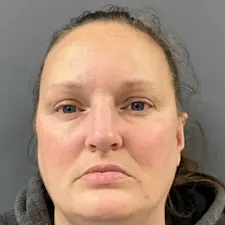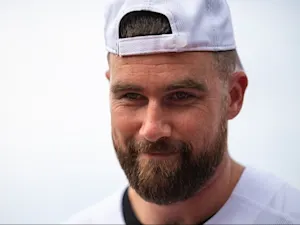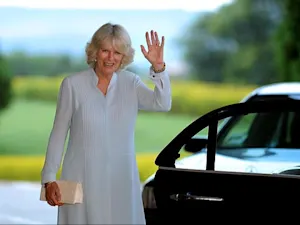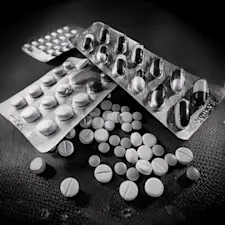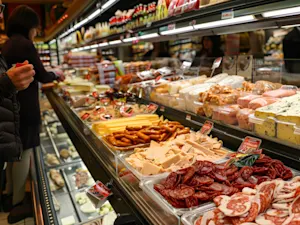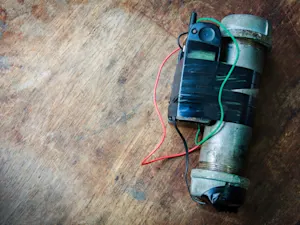
Twin Brother Blames Mom for Sister's Fatal Cancer Choice
British conspiracy theorist Kate Shemirani, a former nurse, addresses a crowd of hundreds of conspiracy theorists at a rally at London's Trafalgar Square, 2020]. Photo courtesy of Salim Fadhley under CC BY-SA 4.0.
This is a story that pulls you into the heart of a tragic clash — where medical science meets maternal ideology, and the stakes are life and death. Paloma Shemirani, a twenty-three-year-old woman from the U.K., died after refusing chemotherapy for non-Hodgkin lymphoma. The coroner's inquest revealed that her mother, known both as Kate and Kay Shemirani, a well-known conspiracy-theory health influencer, played a "leading role" in steering her daughter away from conventional treatment toward unproven alternatives.
A Daughter's Diagnosis and a Mother's Influence
Paloma was diagnosed in 2023 with non-Hodgkin lymphoma, a cancer doctors described as "treatable" with chemotherapy, offering her an 80% chance of recovery, as reported by the New York Post. Initially, Paloma considered chemotherapy, but after leaving the hospital and moving in with her mother, her attitude shifted dramatically. The coroner, Catherine Wood, noted that if Paloma had been supported and encouraged to accept her diagnosis with an open mind, she likely would have chosen chemotherapy and survived, as reported by the New York Post.
Kate Shemirani, who is also legally known as Kay Shemirani, is a former nurse who was reportedly struck off the British Nurses Registry in 2021 for spreading COVID-19 misinformation that "put the public at a significant risk of harm," as reported by the New York Post. According to statements attributed to Kate herself, she is a breast cancer survivor who credits her recovery to the Gerson therapy — an alternative approach involving a strict vegan diet, natural juices, supplements, and frequent coffee enemas. This therapy is not approved by the Food and Drug Administration and is widely cautioned against by major cancer organizations due to lack of scientific evidence and potential risks.
The Alternative Path and Its Consequences
Paloma reportedly rejected chemotherapy in favor of alternative treatments recommended by her mother and her mother's associates. Kate's influence was so significant that the coroner described her role as "leading" in advising and facilitating access to these alternatives, as reported by the New York Post. Paloma's twin brother, Gabriel, was vocal in blaming their mother for obstructing Paloma from receiving proper medical care, stating that Kate "sacrificed" her daughter's life for her own principles.
Doctors at Maidstone hospital had reportedly told Paloma she had a strong chance of survival with chemotherapy, but after discharge, she declined treatment entirely. Consultant haematologist Arunodaya Mohan expressed concern that Kate's questioning of medical staff and suspicion of Western medicine seeded doubt in Paloma's mind about her diagnosis, as reported by The Guardian.
Conflicting Testimonies and Family Divisions
The inquest revealed a family divided. Paloma's written statements to the High Court in 2024 showed she was "delighted" with her alternative treatments and confident she would recover without chemotherapy, citing her "background in natural healing" as part of her decision, as reported by The Guardian. Meanwhile, Kate Shemirani reportedly denied responsibility for her daughter's refusal of chemotherapy, insisting Paloma made her own choices based on her values and research.
During the inquest, Kate was asked whether she had previously described chemotherapy as "a dangerous and toxic process" and compared it to "pumping mustard gas" into a person's veins, as reported by PEOPLE. She called the question "slanderous," denying having made such statements.
Kate also alleged that medical staff's interventions contributed to Paloma's death, claiming her daughter deteriorated catastrophically after paramedics arrived. However, paramedic Robin Bass, testified that Kate repeatedly interrupted their efforts to provide care when Paloma collapsed, forcing them to ask for quiet while administering CPR, as reported by PEOPLE.
The Medical Reality
Doctors who treated Paloma after her collapse reportedly explained that a large tumor in her chest was compressing her airways and possibly affecting major blood vessels, which likely caused the fatal heart attack. Paloma's death was declared brain stem death on July 24, 2024, at Royal Sussex County Hospital, according to The Guardian. Despite the tragic outcome, the coroner described Kate's conduct as "incomprehensible but not unlawful," as reported by the New York Post — emphasizing that her influence contributed more than minimally to Paloma's death.
The Broader Question: Parental Influence and Medical Autonomy
This case raises difficult questions about how far parental influence can or should extend when a young adult's life is at stake. Paloma was legally an adult, and her mother argued that the decision to refuse chemotherapy was Paloma's own, made with full awareness. Yet, the coroner's findings and family testimony suggest a powerful maternal sway that may have clouded Paloma's judgment.
Gabriel Shemirani's testimony was clear: he blamed his mother entirely for his sister's death and called for accountability. The inquest continues to explore these tensions, seeking to understand the tragic intersection of belief, influence, and medical science.
For you, the reader, this story is a stark reminder of the complex dynamics that can unfold when personal beliefs collide with medical realities — and how the consequences can be devastating when lives hang in the balance.
References: Mom played 'leading role' in influencing daughter to refuse chemo: coroner | UK woman who refused cancer drugs was influenced by mother, inquest finds | A British Cancer Patient Refused Chemotherapy and Died. Her Family Blames Her Conspiracy Theorist Mom








